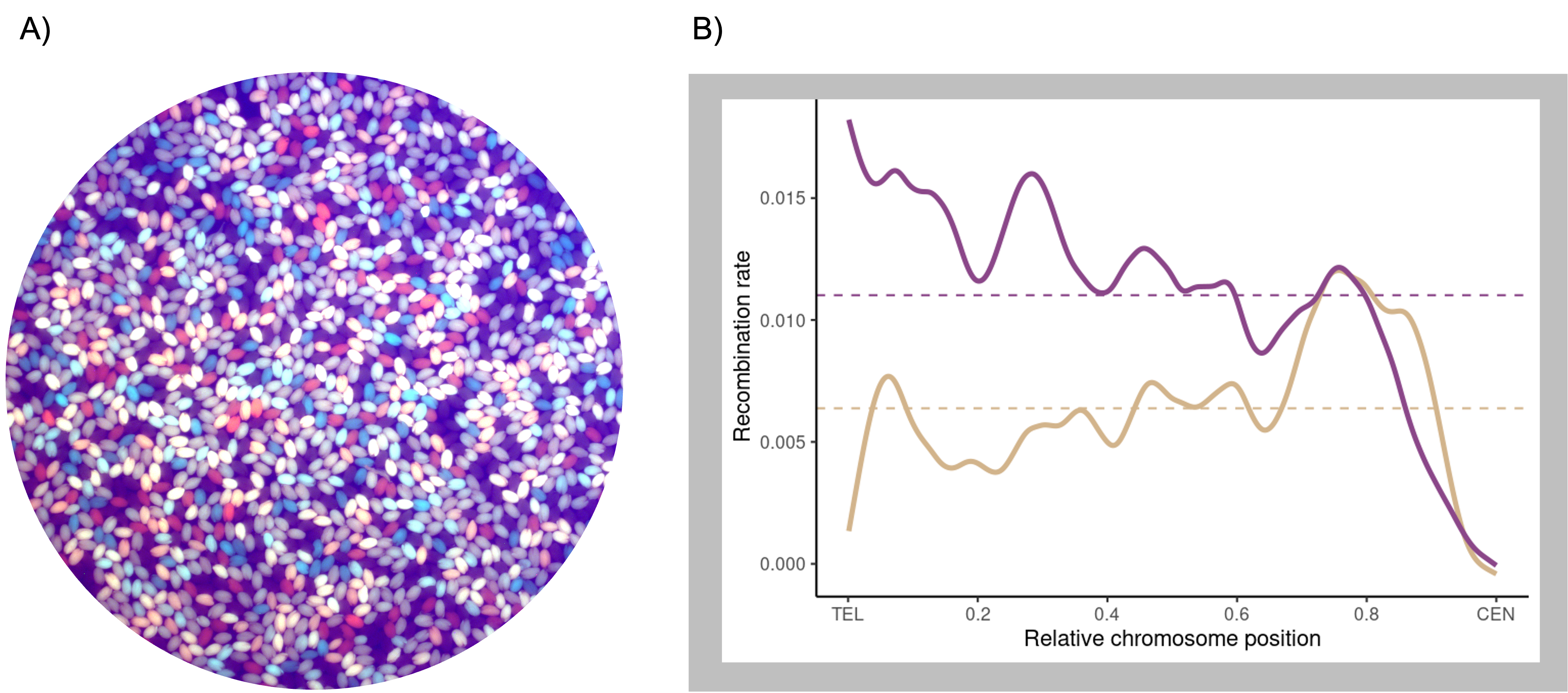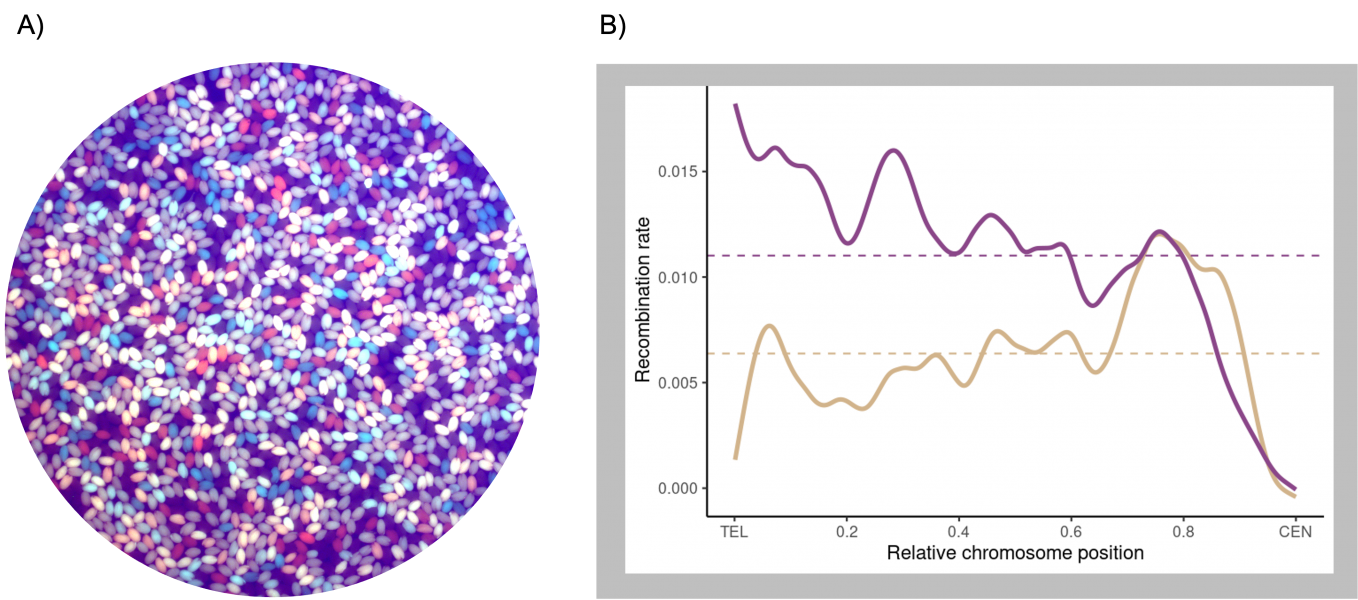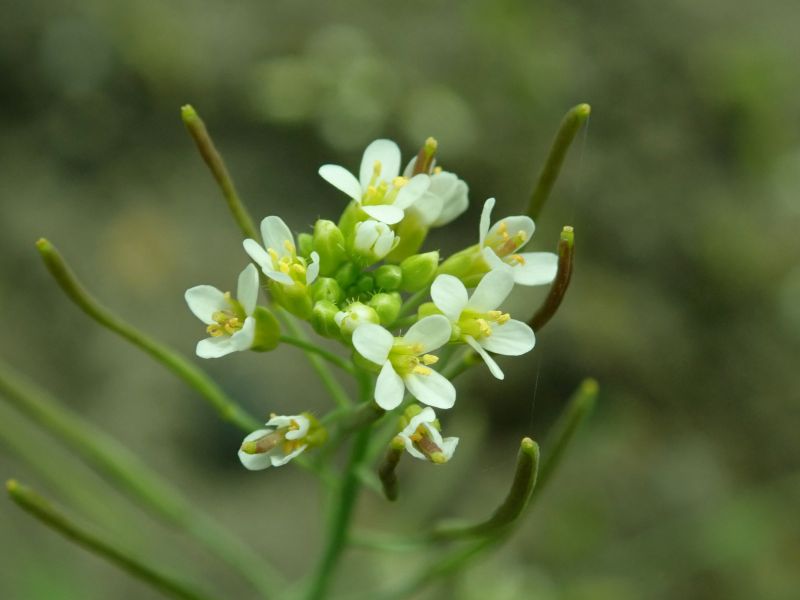Dluzewska J, Dziegielewski W, Szymanska-Lejman M, Gazecka M, Henderson IR, Higgins JD, Ziolkowski PA. MSH2 stimulates interfering and inhibits non-interfering crossovers in response to genetic polymorphism. Nat Commun 14, 6716 (2023)
Meiosis is a type of cell division necessary for the sexual reproduction of organisms. As a result of meiosis, the number of chromosomes in the emerging gametes is reduced, and the full set of genetic information is restored only after fertilization. Importantly, before the number of chromosomes is reduced, the genetic material is reshuffled in the process of crossover recombination, which involves the reciprocal exchange of fragments of homologous chromosomes from the mother and father. The ability to control crossover is very important for breeders because it allows the transfer of genes encoding desired traits between different cultivars.
One of the factors influencing crossover designation is the presence of polymorphisms, i.e. differences in DNA between recombining chromosomes, which are recognized by MSH2 protein complexes. In somatic cells, MSH2 has anti-recombinant properties. However, the role of MSH2 in meiosis is not fully understood.
Crossover events are formed in the cell by two independent pathways, therefore they are divided into class I and class II crossovers. By blocking individual pathways, we examined recombination frequency separately in the context of class I and class II, both in specific chromosomal regions using fluorescent seed-based system (Figure A) and on a genome-wide scale (Figure B) in the model plant Arabidopsis thaliana. We discovered that MSH2 protein, in response to the presence of polymorphisms between recombining chromosomes, stimulates the formation of class I crossovers but blocks class II. The anti-recombination role of MSH2 in class II in polymorphic regions probably involves stimulation of the action of DNA helicases, which cause the dissolution of recombination intermediates and thus repair by other mechanisms. This antagonistic effect of MSH2 on both crossover pathways is probably related to their different biological functions: Class I is meiosis-specific and is responsible for the majority of crossover events. In meiosis, stimulation of crossover in polymorphic regions allows the reshuffling of genetic information and the creation of new genotypes, which is important in the adaptation and evolution of genomes. However, proteins responsible for class II crossover function mainly in somatic cells, where their role is linked to DNA repair. Therefore, class II is not active in polymorphic regions where it could lead to mutations.

Moreover, we analyzed how the distribution of polymorphisms along the chromosome affects recombination. It turns out that the pattern of recombination is similar in inbred lines that lack polymorphisms and in hybrids that have hundreds of thousands of polymorphisms along the chromosomes. However, the pattern of crossovers changes dramatically when part of a chromosome is polymorphic while the rest is non-polymorphic – in such a case the dominant class I crossovers are redistributed to polymorphism-rich regions. Why is the distribution of recombination similar in inbred and hybrid lines? In inbreds, where there are no polymorphisms, MSH2 has nothing to bind to and the distribution of crossover depends mainly on the location on the chromosome. In turn, in hybrids, polymorphisms occur along the entire length of the chromosome, MSH2 complexes bind to them quite evenly and, consequently, the location on the chromosome again influences the distribution of class I crossover. However, in a situation where a single polymorphic region is located on a non-polymorphic chromosome, local increase in the concentration of mismatch-recognizing MSH2 complexes occur, which results in stimulation of class I crossover in the polymorphic region.




